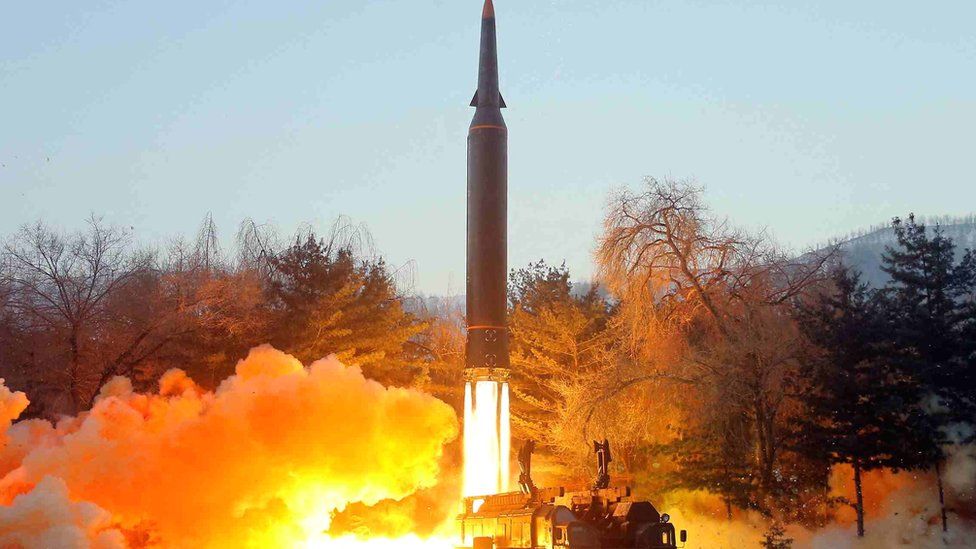North Korea recently tested intercontinental missile system: US
 Image source, Reuters
Image source, ReutersThe US says N Korea recently tested parts of a new intercontinental ballistic missile (ICBM) system, in what it called a "serious escalation".
Pyongyang said the launches on 26 February and 4 March focused on developing a reconnaissance satellite.
But the Pentagon now says the tests were experimental launches, before a likely full-range ICBM launch.
With a minimum range of 5,500km (3,417 miles), ICBMs can reach the US. They are designed for nuclear arms delivery.
A senior US official described the tests as a "serious escalation", adding that the US would slap further sanctions against North Korea on Friday.
The official, who was speaking on condition of anonymity, said the new measures would prevent Pyongyang from accessing "foreign items and technology" to further develop its missile programme.
North Korea is already under biting international sanctions over its missile and nuclear weapons programme.
Pyongyang has not conducted any ICBM or nuclear tests since 2017, though North Korean leader Kim Jong-un has at times hinted he may do so.
The North put a moratorium in place on testing long-range ballistic missiles and nuclear tests after talks with then US President Donald Trump. But in 2020, Mr Kim announced he was no longer bound by this promise.
On Thursday, Pentagon spokesman John Kirby said North Korea's two tests "involved a new intercontinental ballistic missile system".
Neither launch displayed ICBM range or capability, but the tests were carried out "to evaluate this new system before conducting a test at full range in the future, potentially disguised as a space launch," Mr Kirby said.
"The United States strongly condemns these launches, which are a brazen violation of multiple United Nations Security Council resolutions, needlessly raise tensions and risk destabilising the security situation in the region."



No comments